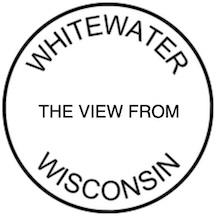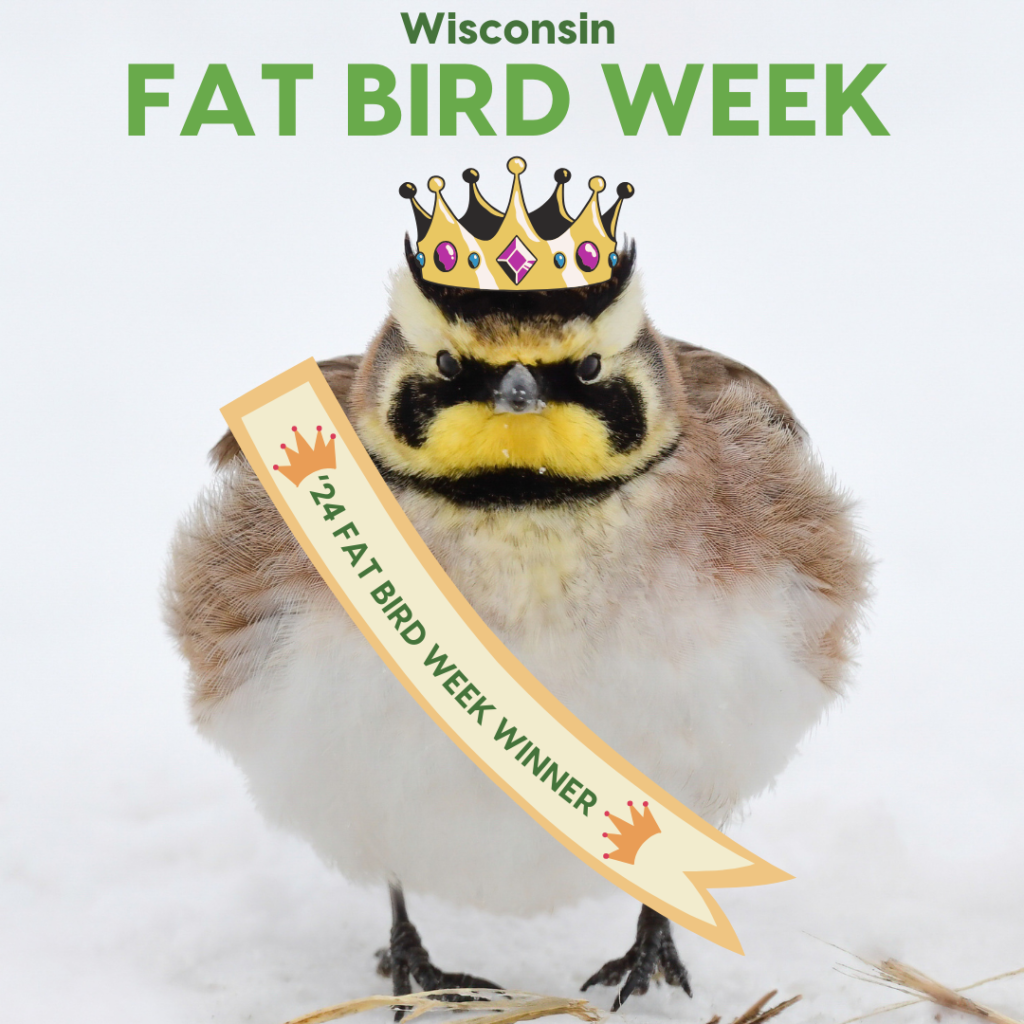Good morning. Friday in Whitewater will be cold with a high of -5. Sunrise is 7:17 and sunset is 4:56 for 9 hours 39 minutes of daytime. The moon is a waxing crescent with 23.1 percent of its visible disk illuminated. On this day in 1957, American inventor Walter Frederick Morrison sells the rights to his flying disc to…
Conservation
Conservation, Daily Bread, Nature, Wisconsin
Daily Bread for 1.11.26: A Conservation Success for Wisconsin
by JOHN ADAMS •
Good morning. Sunday in Whitewater will be cloudy with a high of 32. Sunrise is 7:24 and sunset is 4:41 for 9 hours 17 minutes of daytime. The moon is a waning crescent with 41 percent of its visible disk illuminated. On this day in 1820, the Great Savannah Fire of 1820 destroys over 400 buildings in Savannah,…
Conservation, Daily Bread, Legislation, Legislature, WISGOP
Daily Bread for 12.23.25: False Claims Battle Sound Data in Fight Over a Wisconsin Conservation Program’s Future
by JOHN ADAMS •
Conservation, Daily Bread, Legislation, Legislature, Wisconsin
Daily Bread for 12.10.25: Wisconsin Conservation Program’s Future Uncertain
by JOHN ADAMS •
Good morning. Wednesday in Whitewater will be windy with a high of 31. Sunrise is 7:15 and sunset is 4:20 for 9 hours 5 minutes of daytime. The moon is a waning gibbous with 62.5 percent of its visible disk illuminated. On this day in 1864, during Sherman’s March to the Sea, Major General William Tecumseh…
Conservation, Daily Bread, Legislation, Wisconsin
Daily Bread for 8.27.25: The Push to Save a Wisconsin Conservation Program
by JOHN ADAMS •
Good morning. Wednesday in Whitewater will be sunny with a high of 74. Sunrise is 6:14 and sunset is 7:37, for 13 hours, 23 minutes of daytime. The moon is a waxing crescent with 17.4 percent of its visible disk illuminated. On this day in 1776, members of the 1st Maryland Regiment repeatedly charged a numerically superior…
Conservation, Daily Bread, Weird Tales
Daily Bread for 8.14.25: One of the Strangest Conservation Efforts in American History
by JOHN ADAMS •
Good morning. Thursday in Whitewater will be sunny with a high of 81. Sunrise is 6:00 and sunset is 7:57, for 13 hours, 57 minutes of daytime. The moon is a waning gibbous with 68.1 percent of its visible disk illuminated. On this day in 1948, an Idaho Department of Fish and Game program to relocate beavers known as…
Conservation, Daily Bread, Nature, Wisconsin
Daily Bread for 7.26.25: Beautiful Wisconsin
by JOHN ADAMS •
Good morning. Saturday in Whitewater will be rainy with a high of 81. Sunrise is 5:40 and sunset is 8:21, for 14 hours, 41 minutes of daytime. The moon is a waxing crescent with 4 percent of its visible disk illuminated. On this day in 1848, the first governor of Wisconsin, Nelson Dewey, establishes the University…
Conservation, Daily Bread, Nature, Wisconsin
Daily Bread for 7.11.25: The Knowles Nelson Stewardship Fund Deserves Renewed Support
by JOHN ADAMS •
Animals, Birds, Conservation, Daily Bread, Environment, Insects, Nature, Plants, Wisconsin
Daily Bread for 6.24.25: Prairies & Pollinators
by JOHN ADAMS •
Good morning. Tuesday in Whitewater will be cloudy with a high of 84. Sunrise is 5:17 and sunset is 8:37, for 15 hours, 20 minutes of daytime. The moon is a waning crescent with 1.2 percent of its visible disk illuminated. On this day in 1812, Napoleon’s Grande Armée crosses the Neman river beginning the invasion of Russia. An interlude for…
Birds, Conservation, Daily Bread, Good Ideas, Nature, Wisconsin
Daily Bread for 4.23.25: Mark Your Calendars for Fat Bird Week (Yes, Wisconsin Has a Fat Bird Week)
by JOHN ADAMS •
Good morning.

Wednesday in Whitewater will see scattered afternoon showers with a high of 70. Sunrise is 6:00 and sunset is 7:46, for 13 hours, 47 minutes of daytime. The moon is a waning crescent with 23.9 percent of its visible disk illuminated.
On this day in 1985, Coca-Cola changes its formula and releases New Coke. The response is overwhelmingly negative, and the original formula is back on the market in less than three months.
Something happy today, as though a palate cleanser in difficult times. Wisconsin’s Second Fat Bird Week is approaching. The Natural Resources Foundation of Wisconsin will hold Fat Bird Week from May 2nd to May 9th:
Let’s celebrate our chunky native birds and learn how to help them! Every day from May 2nd to May 9th you’ll get the chance to vote for your favorite bulbous bird.
How does voting work?
Our 8 chubby contestants compete in a single elimination, bracket-style tournament.
The first round of voting will open at 9am CST on Friday, May 2nd and voting will remain open for 48 hours. The second round of voting will open at 9am CST on Sunday, May 4th and remain open for 24 hours. The following rounds will open at 9am CST and last 24 hours until the final round on Friday, May 9th. The winner will be announced on Monday, May 12th.
Receive daily reminders to vote by signing up for the Bird News You Can Use email list. You’ll also be the first to find out who won Fat Bird Week!
….
In the world of birds, a fat bird is a healthy bird. Fat acts as a great lightweight source of energy for these important pollinators. Many of our favorite native Wisconsin species are also migratory birds and can pack on 50-100% of their body weight to store up enough energy for their long journey. For our non-migratory chonkers, they are able to fluff out their feathers during the winter months to stay warm.
Fat, healthy birds benefit our environment in a variety of ways. As key pollinators, birds disperse seeds, pollinate plants, and help manage pests in farmlands and forests. Birds also have significant mental health benefits for humans and support Wisconsin’s $2.6 billion wildlife watching economy. Known as “canaries in the coal mine,” birds can alert both people and wildlife to unhealthy conditions, too. What are the four biggest ways you can help?
See the Natural Resources Foundation of Wisconsin website for more information about their good work.
Here’s the 2024 winner:

Heavy dust storm sweeps across state in northern Mexico:
America, Cats, Conservation, Nature
Friday Catblogging: The Return of Ocelots?
by JOHN ADAMS •
Embed from Getty Images Christine Dell’Amore writes Ocelots once roamed the U.S. Can we bring them back? (‘Ocelots are a quintessentially American cat—yet a single tropical storm could wipe them off the U.S. map. Will a pioneering new partnership make a difference?’): Only a few centuries years ago, the northern ocelot was a quintessential American…
Animals, Conservation, Daily Bread, Nature, WI DNR, Wisconsin
Daily Bread for 1.28.23: Public Listening Session for Wisconsin’s Wolf Management Plan
by JOHN ADAMS •
Conservation, Daily Bread, WI DNR, Wisconsin
Daily Bread for 11.12.22: Wisconsin’s New Wolf Management Proposal
by JOHN ADAMS •
Good morning. Saturday in Whitewater will be mostly cloudy with a high of 37. Sunrise is 6:44 AM and sunset 4:34 PM for 9h 49m 53s of daytime. The moon is a waning gibbous with 84.5% of its visible disk illuminated. On this day in 1927, Leon Trotsky is expelled from the Soviet Communist Party, leaving…
Conservation, Daily Bread
Daily Bread for 8.13.22: Pencils Made from… Old Newspapers
by JOHN ADAMS •
Good morning. Saturday in Whitewater will see scattered afternoon showers with a high of 78. Sunrise is 5:58 AM and sunset 7:59 PM for 13h 58m 57s of daytime. The moon is a waning gibbous with 97.6% of its visible disk illuminated. On this day in 1961, East Germany closes the border between the eastern and…
